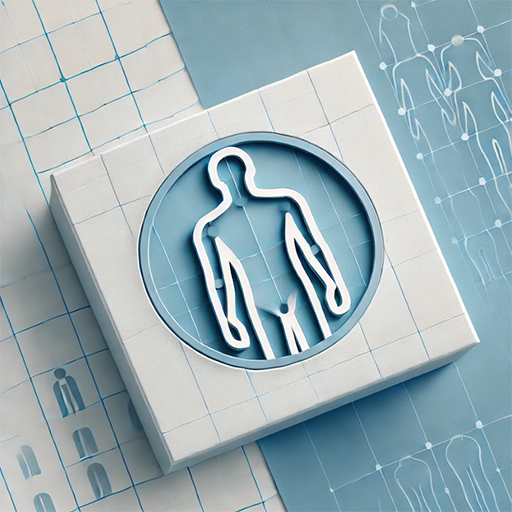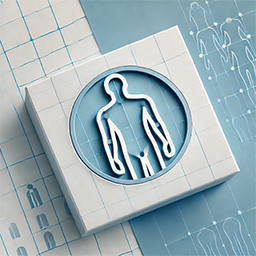Losing weight isn’t just about looking better or fitting into your favorite clothes—it’s about feeling stronger, moving easier, and living a longer, healthier life. Carrying extra weight can affect almost every part of your body. It puts pressure on your heart, strains your joints, raises your risk of illness, and can even affect your mood and energy levels.
When you start to lose weight, you do more than slim down—you give your body a break. Your heart doesn’t have to work as hard, your blood sugar levels can improve, and your joints feel less pain. You may sleep better, feel more alert during the day, and enjoy a more positive mood.
Whether you want more energy, better heart health, or a stronger immune system, losing even a small amount of weight can make a big impact. In this blog post, we’ll explore the powerful connection between weight loss and better health. You’ll learn simple facts and practical tips to help you on your path to a healthier you.
Why Weight Loss Matters for Your Health
Carrying extra weight can put a lot of stress on your body. It makes your heart work harder, puts pressure on your joints, and can raise your blood sugar levels. Extra weight may also affect your mood and energy, making you feel tired or down. Over time, these problems can lead to serious health issues like heart disease, diabetes, and joint pain.
Losing weight helps take that pressure off. It supports your heart, lowers blood sugar, reduces joint pain, and can even boost your mood. When you lose weight, your body doesn’t have to work as hard—and that helps you feel better and stay healthier.
How Excess Weight Affects Your Body
Heart Health: Carrying extra weight forces your heart to work harder than it should. This added strain can raise your blood pressure and increase your risk of heart disease and stroke. Over time, the heart may weaken, making it harder to pump blood properly.
Blood Sugar Control: Being overweight makes it more difficult for your body to use insulin the right way. This can lead to higher blood sugar levels and a greater risk of developing type 2 diabetes. Losing weight can help your body manage blood sugar more effectively.
Joint Stress: Extra pounds add pressure to your joints, especially in the knees, hips, and lower back. This can lead to joint pain and increase your risk of developing arthritis. Weight loss can reduce this pressure, making it easier to move and stay active.
Mental Health: Weight can also affect your mind. People who are overweight are more likely to feel anxious or depressed. Studies show that losing weight can improve your mood and lower symptoms of depression. Feeling better physically often leads to feeling better emotionally, too.
According to the Centers for Disease Control and Prevention (CDC), losing just 5–10% of your body weight can lead to big improvements in your health. Even small changes can make a big difference.

Benefits of Weight Loss for Better Health
Shedding pounds does more than change the way you look—it can lead to major improvements in your overall health. Losing weight helps your body function better and can lower your risk of many serious health problems. From boosting your energy to protecting your heart, the benefits go far beyond the scale. Here’s how losing weight can truly transform your health:
1. Lower Risk of Chronic Diseases
Losing weight helps protect your body from long-term health problems. Even a small amount of weight loss can lead to big changes in your body’s systems:
- Reduces blood pressure: Less weight means less strain on your heart and blood vessels.
- Improves cholesterol levels: Weight loss can lower bad cholesterol (LDL) and raise good cholesterol (HDL).
- Decreases blood sugar levels: Shedding pounds helps your body use insulin better, which keeps blood sugar in a healthy range.
- Lowers risk of heart disease and stroke: With better blood pressure, cholesterol, and sugar levels, your heart stays stronger and healthier.
These changes work together to greatly lower your risk of developing serious conditions like heart disease, stroke, and type 2 diabetes.
2. Increased Energy and Stamina
Losing weight can give you a big boost in energy. As you shed extra pounds, your body doesn’t have to work as hard to move, breathe, or rest. This often leads to better sleep and feeling more refreshed during the day.
- You may wake up with more energy and feel less tired in the afternoon.
- Simple tasks like climbing stairs or walking to the store become easier.
- With less weight to carry, your muscles and lungs work more efficiently.
- Exercise becomes more enjoyable and less tiring, which helps you stay active.
More energy and better stamina make it easier to enjoy life and keep up with the activities you love.
3. Improved Mental Health
Losing weight doesn’t just help your body—it also helps your mind. When you start to see changes in your body, your confidence can grow. This boost in self-esteem can make you feel more positive about yourself and your future.
- Weight loss can reduce feelings of stress and anxiety.
- Seeing progress can lift your mood and give you a sense of control.
- Physical activity, often part of a weight loss plan, releases endorphins—your brain’s natural “feel good” chemicals.
- These endorphins can help lower feelings of sadness or worry and improve your overall mood.
Better mental health makes it easier to stay motivated and continue making healthy choices every day.
4. Better Mobility and Less Pain
Losing weight can make it much easier to move and stay active. When you carry less weight, there is less pressure on your knees, hips, and lower back. This helps your joints work better and feel less sore.
- You may notice less stiffness when walking or climbing stairs.
- Daily movements like bending, stretching, or lifting become easier.
- Less strain on your joints means a lower risk of pain and swelling.
- Weight loss can also help prevent or reduce arthritis flare-ups.
Better mobility helps you stay independent, enjoy physical activity, and keep your body strong and flexible.
5. Enhanced Immune Function
Maintaining a healthy weight can strengthen your immune system. When you carry extra weight, your body may have a harder time fighting off infections and illnesses. Losing weight helps your immune system work more efficiently.
- A healthy weight supports the production of important immune cells.
- Your body can respond faster to germs and heal more quickly.
- Weight loss reduces inflammation, which can weaken the immune system.
- A stronger immune system means fewer sick days and better overall health.
By reaching and keeping a healthy weight, you help your body protect itself and stay well throughout the year.

How to Lose Weight for Better Health: Tips That Work
Weight loss can feel overwhelming, but simple changes can make a big difference. Here are some easy tips:
Focus on Healthy Eating
- Choose whole foods like fruits, vegetables, lean proteins, and whole grains
- Avoid sugary drinks and processed snacks
- Watch portion sizes to avoid overeating
- Drink plenty of water throughout the day
Increase Physical Activity
- Aim for at least 150 minutes of moderate exercise per week (like brisk walking or cycling)
- Add strength training twice a week to build muscle and boost metabolism
- Find activities you enjoy to stay motivated
Create Healthy Habits
- Get enough sleep (7-9 hours per night)
- Manage stress through meditation, yoga, or hobbies
- Keep a food and activity journal to track progress
- Set realistic, achievable goals
The Science Behind Weight Loss and Health
Understanding how weight loss improves health can motivate you even more.
How Losing Fat Helps Your Heart
Fat tissue, especially around your belly, releases chemicals that can harm your heart and blood vessels. Losing fat reduces these harmful substances and lowers inflammation, which protects your heart.
Weight Loss and Blood Sugar Control
Excess fat makes your body less sensitive to insulin, a hormone that controls blood sugar. Losing weight improves insulin sensitivity, reducing the risk of diabetes.
Impact on Hormones and Mood
Weight loss can balance hormones related to appetite, energy, and mood. This helps reduce cravings and supports mental wellbeing.
For more detailed information, check out this comprehensive guide from the Mayo Clinic.
Common Myths About Weight Loss and Health
It’s easy to get confused with all the information out there. Here are some myths debunked:
- Myth: “Carbs make you gain weight.”
Truth: Carbs aren’t the enemy. Choose healthy carbs like whole grains and fruits. - Myth: “You need to exercise hours every day to lose weight.”
Truth: Even moderate activity helps. Consistency matters more than intensity. - Myth: “Skipping meals helps you lose weight.”
Truth: Skipping meals can slow metabolism and cause overeating later.
When to Seek Professional Help
Sometimes, weight loss is harder due to medical conditions or other challenges. Don’t hesitate to talk to a healthcare provider if:
- You have a chronic illness like diabetes or heart disease
- You find it difficult to lose weight despite trying
- You experience emotional struggles related to weight
Professional support from dietitians, doctors, or therapists can guide you safely.

Real-Life Success Stories: Inspiration to Keep Going
Many people have improved their health through weight loss. For example:
- Sarah lost 20 pounds in six months, lowering her blood pressure and feeling more energetic.
- Mike started walking daily and shed 15 pounds, which reduced his joint pain.
These stories show that sustainable weight loss is possible with patience and the right mindset.
Key Takeaways: Why Weight Loss Leads to Better Health
- Weight loss reduces risks for heart disease, diabetes, and more.
- It improves energy, mood, and mobility.
- Healthy eating and physical activity are essential.
- Small changes over time lead to lasting results.
Ready to Start Your Weight Loss Journey?
Take the first step today! Focus on making small, healthy changes. Remember, your goal isn’t just weight loss—it’s a healthier, happier you.
What’s one small change you can make today to improve your health? Share your thoughts below or join the conversation on social media!



